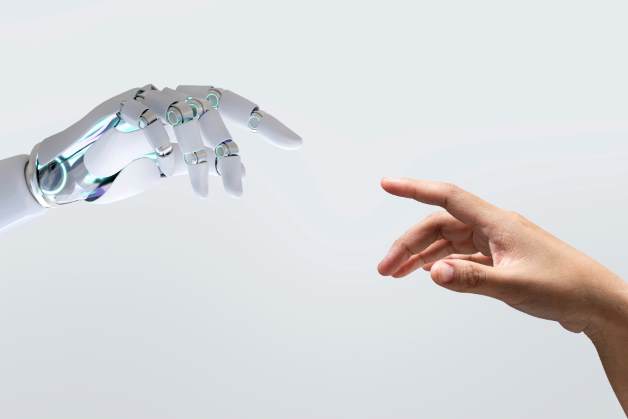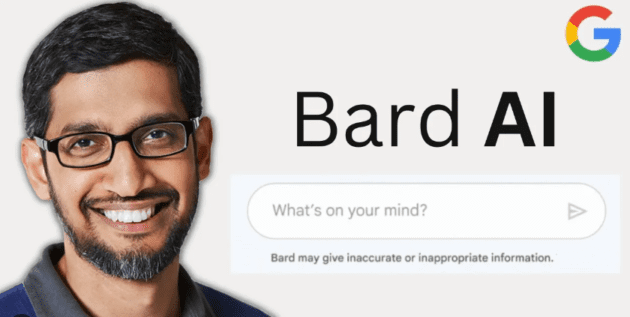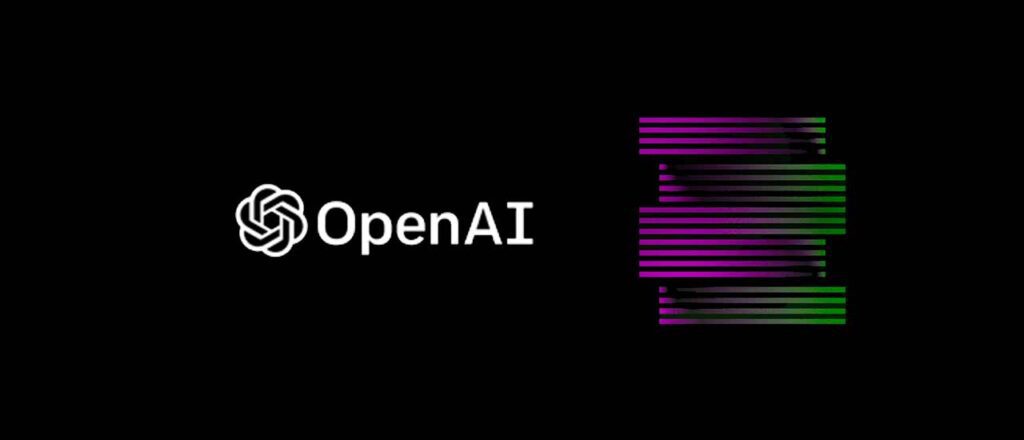ChatGPT is a cutting-edge artificial intelligence language model developed by OpenAI. Recently, it has garnered significant attention from the technology and marketing communities due to its ability to generate human-like text based on input. This technology has the potential to revolutionize the way marketers interact with their target audience and create personalized content.
This blog post will delve into ChatGPT, its best uses, its limitations, how it will change the marketing landscape, and Google’s answer to ChatGPT. Join us as we explore the exciting world of AI-powered language models and how they are shaping the future of marketing and customer engagement.
Discovering the Capabilities of ChatGPT in AI Technology

ChatGPT, which stands for “Chat Generative Pre-trained Transformer,” is an AI-powered language model developed by OpenAI. It was created using deep learning techniques and was trained on a massive corpus of text data from the internet, making it capable of generating text similar to human writing.
ChatGPT uses a transformer-based architecture, a type of neural network designed for processing sequences of data, such as text. The model takes in a sequence of words and generates the next word based on the context of the received input. It does this by using attention mechanisms that allow it to focus on the most relevant information in the input and generate output accordingly.
The pre-training of ChatGPT makes it capable of performing various natural language processing (NLP) tasks such as answering questions, generating text, summarizing long pieces of text, translating languages, and more. Its advanced language understanding capabilities allow it to generate text that is not only grammatically correct but also semantically coherent and contextually appropriate.
ChatGPT: A Game-Changer
ChatGPT has numerous applications across different industries, making it one of the market’s most versatile AI-powered language models. Some of the best uses of ChatGPT are:
- Chatbots: ChatGPT can create advanced chatbots that can converse with customers human-likely, providing quick and efficient customer service.
- Question answering systems: ChatGPT can be used to create systems that can answer questions with high accuracy. This has the potential to transform industries such as education, finance, and healthcare, where quick and accurate answers are critical.
- Content generation: ChatGPT can generate articles, blog posts, product descriptions, and more, saving time and resources for content creators and marketers.
- Sentiment analysis: ChatGPT can analyze and classify text based on sentiment, allowing businesses to understand the public sentiment towards their brand, products, and services.
- Language translation: ChatGPT can be used to translate languages, making it easier for businesses to expand into new markets and communicate with customers in their preferred language.
- Text completion: ChatGPT can be used to complete partially written text, making it an ideal tool for productivity and efficiency.
- Summarization: ChatGPT can summarize long pieces of text into concise and coherent summaries, making it easier to digest large amounts of information.
- Customer service automation: ChatGPT can automate routine customer service tasks, freeing up customer service agents to handle more complex issues.
- Text classification: ChatGPT can classify text into different categories, such as spam or non-spam, sentiment, topic, and more.
- Text-to-speech conversion: ChatGPT can be used to generate speech from text, making it possible to create lifelike virtual assistants that can converse with
These are just a few examples of the many applications of ChatGPT. As technology evolves and improves, the possibilities will only increase, making ChatGPT an indispensable tool for businesses and organizations worldwide.
See also: What Is Tumblr Blaze & How Creators Can Make Use Of It?
The Challenges of ChatGPT

Like all AI models, ChatGPT also has its limitations. Some of the key limitations of ChatGPT are:
- Bias: ChatGPT is trained on a massive corpus of text data from the internet, which may contain biases and inaccuracies. This can result in the model generating biased or incorrect outputs.
- Lack of common sense: ChatGPT has a good understanding of language but lacks common sense, which can generate absurd responses.
- Contextual limitations: ChatGPT may struggle with understanding context, especially in complex or multi-faceted scenarios. This can result in it generating inappropriate or irrelevant outputs.
- Data privacy and security: ChatGPT requires access to large amounts of text data, which raises privacy and security concerns. Companies using ChatGPT must take appropriate measures to protect sensitive data and prevent unauthorized access.
- High computational power: ChatGPT requires high computational power and resources, making it challenging for smaller companies or organizations to implement and use the technology.
- Limited domain knowledge: ChatGPT may not have enough domain knowledge in specific industries or topics, which can generate incorrect outputs.
Despite these limitations, ChatGPT is a powerful technology that has the potential to revolutionize the way we interact with technology and perform various NLP tasks. These limitations will likely be addressed and overcome as technology evolves and improves.
Embracing the Future of Marketing with ChatGPT Technology
ChatGPT is poised to impact the field of marketing significantly and has the potential to revolutionize how marketers interact with their customers and create content. Here’s how:
- Customer engagement: ChatGPT can create advanced chatbots that can converse with customers human-likely, providing quick and efficient customer service. This can improve customer engagement and satisfaction, increasing brand loyalty and advocacy.
- Content creation: ChatGPT can generate articles, blog posts, product descriptions, and more, saving time and resources for content creators and marketers. This can enable marketers to focus on more strategic initiatives, such as campaign planning and customer engagement.
- Sentiment analysis: ChatGPT can analyze and classify text based on sentiment, allowing businesses to understand the public sentiment towards their brand, products, and services. This can inform marketing strategies, helping businesses to improve customer satisfaction and engagement.
- Personalization: ChatGPT can be used to personalize marketing campaigns and customer interactions, tailoring messages and offers to individual customers based on their preferences and behavior. This can result in higher conversion rates and increased customer loyalty.
- Data-driven decision-making: ChatGPT can generate insights and recommendations based on large amounts of customer data, allowing businesses to make data-driven decisions about marketing strategies, customer engagement, and product development.
See also: Learn How To Check If A YouTube Channel Is Monetized Or Not
ChatGPT Plus: The New Paid Version
ChatGPT Plus, the new paid version of ChatGPT, is a subscription-based offering from OpenAI. With this new version, users will have access to advanced features and improved performance compared to the free version of ChatGPT. ChatGPT Plus is only available to customers in the United States and can be subscribed to for $20 per month.
OpenAI has a process of inviting users from its waitlist in the upcoming weeks. This new paid version of ChatGPT represents a significant milestone for the company and the AI industry. It demonstrates the growing demand for advanced AI technology in various industries, including marketing and customer service. With its advanced features and capabilities, ChatGPT Plus is set to revolutionize how businesses interact with their customers.
The combination of advanced features and improved performance make ChatGPT Plus an attractive option for businesses looking to stay ahead in the rapidly evolving AI industry. With its cutting-edge technology and exceptional customer support, ChatGPT Plus is poised to become a game-changer for the marketing and customer service industries.
The Future of AI Conversations: Google’s Answer to ChatGPT

According to recent news, Google has announced the development of an AI chatbot named “Bard” to compete with ChatGPT. The announcement was made by Google CEO Sundar Pichai, stating that Bard will soon be available to a select group of trusted testers and will be made more widely available in the near future.
It is reported that a lightweight version of LaMDA will power Bard, Google’s AI language model technology, and will use information from the web to provide fresh and high-quality responses. Google plans to integrate more AI-powered features into its search engine in the coming days.
According to CEO Sundar Pichai, the LaMDA model used in Bard requires less computing power, making it easier to expand its reach to more users and gather feedback more efficiently. During the testing phase, both external and internal feedback will be considered to ensure high standards of quality, safety, and reliability based on real-world information.
In addition to the release of Bard, Google is also planning to incorporate more AI-powered features into its search engine, including the ability to summarize information and provide deeper insights into users’ queries.
Bottomline
ChatGPT is a cutting-edge technology that is poised to revolutionize the marketing industry. With its advanced natural language processing capabilities, ChatGPT offers a multitude of opportunities for marketers to enhance customer experience, automate customer service, and drive sales. However, as with any technology, ChatGPT also has its limitations and challenges that must be addressed to leverage its potential fully.
As the world of AI continues to evolve, marketers need to stay informed and adapt to the changes brought about by ChatGPT and other AI technologies. Google’s entry into the AI language model market offers an exciting new competitor to ChatGPT, further fueling the innovation and advancements in the field.
The future of marketing is rapidly changing, and ChatGPT plays a major role in shaping this change. By embracing the power of ChatGPT and other AI technologies, marketers can stay ahead of the curve and deliver exceptional customer experiences.

